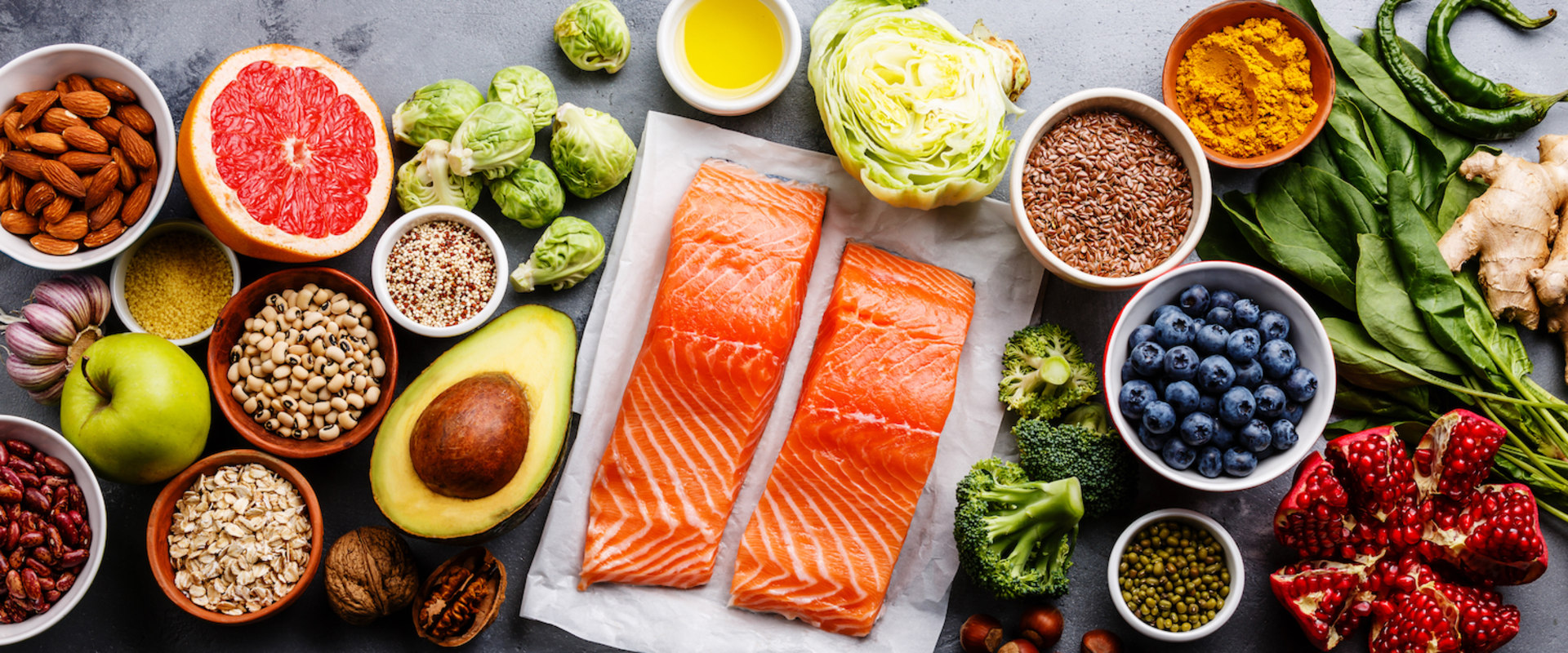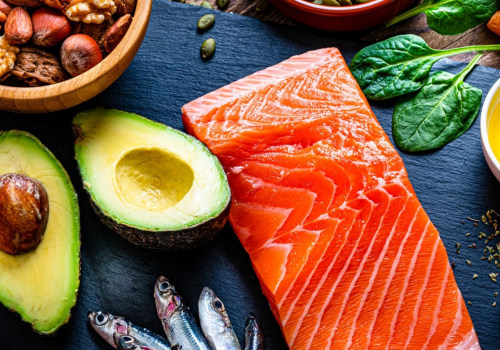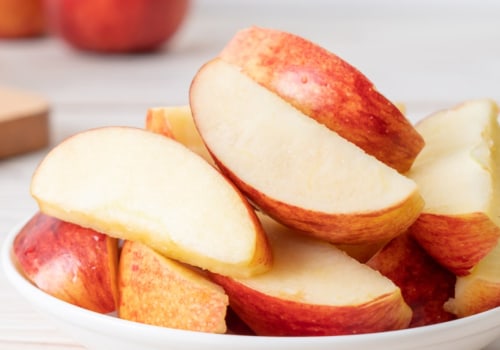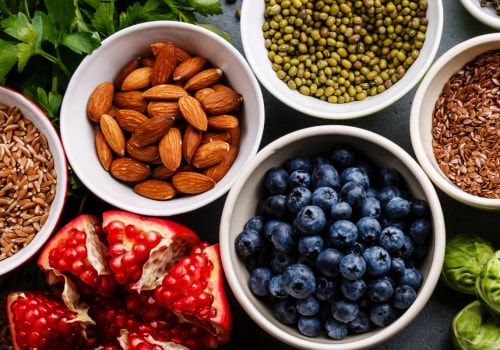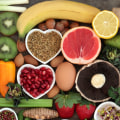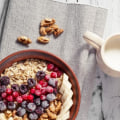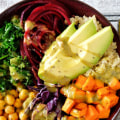Here are 16 foods that may deserve the esteemed title of superfoods. Part of what makes DGLVs so great is their potential to reduce the risk of chronic diseases, such as heart disease and type 2 diabetes (1,. Berries are an inexhaustible source of vitamins, minerals, fiber and antioxidants. The strong antioxidant capacity of berries is associated with a reduced risk of heart disease, cancer and other inflammatory conditions (4,.
Berries may also be effective in treating various digestive and immune disorders when used in conjunction with traditional medical therapies (. Whether you enjoy them as part of breakfast, as a dessert, in a salad or in a smoothie, the health benefits of berries are as versatile as their culinary applications. Berries are full of nutrients and antioxidants that can prevent certain diseases and improve digestion. Eggs contain two powerful antioxidants, zeaxanthin and lutein, which are known to protect eyesight and eye health (10, 1).
Despite fears related to egg consumption and high cholesterol, research indicates that eating 6 to 12 eggs a week does not significantly increase the risk of heart disease or diabetes (1). In fact, eating eggs could increase “good cholesterol” HDL in some people, which could lead to a favorable reduction in the risk of heart disease. More research is needed to reach a definitive conclusion (1). Research indicates that they offer many health benefits, such as better management of type 2 diabetes, as well as a reduction in blood pressure and cholesterol (1).
Eating beans and legumes regularly can also promote a healthy weight, due to their ability to improve feelings of fullness (1). They also contain several plant compounds with anti-inflammatory and antioxidant properties, which may protect against oxidative stress (1). Research indicates that eating nuts and seeds may have a protective effect. against heart disease (1).
Interestingly, although nuts and seeds are calorie-dense, some types of nuts are linked to weight loss when included in a balanced diet (18, 19, 20). Fermented, probiotic-rich foods, such as kefir, have several associated health benefits, such as lowering cholesterol, lowering blood pressure, improving digestion and having anti-inflammatory effects (21, 22, 2). Research indicates that garlic may be effective in reducing cholesterol and blood pressure, as well as in boosting immune function (2). In addition, sulfur-containing compounds in garlic may even play a role in preventing certain types of cancer (2).
Adding olive oil to your diet may reduce inflammation and the risk of certain diseases. such as heart disease and diabetes (26, 27, 2.Ginger may be effective in controlling nausea and reducing pain caused by acute and chronic inflammatory conditions (29, 30, 3). It may also reduce the risk of chronic diseases such as heart disease, dementia and certain types of cancer (32, 33, 3) Studies show that curcumin may be effective in treating and preventing chronic diseases such as cancer, heart disease and diabetes (35, 3). It can also help heal wounds and reduce pain (37, 3).
the best sources of omega-3 fatty acids, which are known for a variety of health benefits, such as reducing inflammation (3). Salmon is a good source of many nutrients, especially omega-3 fatty acids). Limit your consumption of salmon to avoid the potential negative effects of common contaminants in fish and seafood. Despite their sweet taste, sweet potatoes don't raise blood sugar as much as you might expect.
Interestingly, they may actually improve blood sugar control in people with type 2 diabetes (4). For optimal health, it's a good idea to choose foods that contain the most nutrients.). These are the 11 most nutrient-rich foods in the world. Everyone knows that vegetables are healthy, but some stand out from the rest.
Here are 14 of the healthiest vegetables out there. Berries are among the healthiest and most nutritious foods in the world. Here are 11 ways eating berries can improve your health. Berries also seem to be good for our aging brains.
That's why they're a key part of the MIND diet, which focuses on foods that combat neurodegenerative retardation. Other “brain-healthy” foods in this brain-healthy diet include vegetables, beans, whole grains, nuts, seafood, and poultry. Alicia Arbaje, MD. Add them to your smoothies or oatmeal.
Fish such as salmon, cod, tuna and trout are a lean source of protein, which older people need to maintain or recover muscle mass. Bernard recommends eating five to six ounces of protein a day, whether it's seafood, poultry, nuts, seeds, soy products, or lean meat. Fish is also a good source of vitamin B12, a nutrient found only in animal foods and that we have a harder time absorbing as we age. Nuts and seeds are also important sources of healthy fats.
It might be time to give these small curds that are high in calcium a permanent place on the weekly menu. But instead of doing that, eat cottage cheese. It is also high in calcium and vitamin D. Experts in vitamin B12, calcium and vitamins agree that “food comes first,” so you should generally try to get nutrients from whole foods before turning to supplements.
However, since many of those over 50 years of age lack vitamin B12 in particular, the National Institutes of Health recommends that anyone over that age take a vitamin B12 supplement. The Tufts food pyramid for older adults also suggests asking your doctor about adding calcium and vitamin D. Rosenbloom recommends taking a daily multivitamin formulated for people over 50 and that is “verified by the USP” and tested by the nonprofit organization Pharmacopoeia of the United States. Members can save 50% on prescription lenses.
It's very likely that you haven't heard of Mankai, also known as the smallest vegetable in the world. I'm sure I didn't know anything about this little superfood until Samina Kalloo, RDN, CDN, director of nutritional communication at Pollock Communications, gave me an idea of its power to store proteins and vitamins. Despite its small size, Mankai has all nine essential amino acids, vitamin B, iron and more than 60 nutrients, Kalloo says. You and your SO,.
Turmeric, a spice you probably already have in your closet, can reduce inflammation, improve memory, reduce the risk of some chronic diseases and combat free radicals (also known as those that contribute to aging), Kalloo says. You might be familiar with tahini if your nighttime cravings include hummus and pita chips. Tahini, a main ingredient in hummus made from ground sesame seeds, originates in the Middle East, but has made its way into the aisles of Trader Joe's and Whole Foods. It can be a little disconcerting to figure out what exactly to do with pomegranates or seeds.
But its health benefits definitely outweigh any lingering confusion you may have. As an inexhaustible source of antioxidants, pomegranate seeds can protect cells from damage and help prevent diseases, says Golub. They are abundant in fiber, which helps digestion, in addition to containing vitamin C, vitamin K and folic acid, says Golub. If your body isn't an area suitable for dairy, there are still plenty of other fermented foods you can incorporate into your everyday meals.
Mix sauerkraut with coleslaw or other chopped salads. And don't forget pickles, which are a great addition to sandwiches and salads, Kalloo recommends. It is essential to include superfoods in our daily diet because it is a great way to increase nutrients and to provide our body with a large amount of antioxidants, minerals, vitamins, fatty acids and fiber. After all, it's no secret that the more diverse your diet, the better.
Sure, regular consumption of superfoods won't necessarily cure diseases, but it will make your body less prone to them and will promote your overall well-being. Below, we have made the list of the top 13 superfoods that live up to their name. Spirulina is the most nutrient-rich superfood of all time, according to countless studies and research. These blue-green algae are loaded with essential nutrients, including vitamins B1, B2, B3 and minerals such as copper, magnesium, potassium, iron and manganese.
It is also a great source of vegetable proteins loaded with essential amino acids. In addition, spirulina is a low-calorie and low-fat product. This superfood has many health benefits, including antioxidant, anti-inflammatory, and immunomodulating properties. Consuming spirulina has been shown to help reduce oxidative stress and boost the immune system.
Spirulina can help balance blood lipid and blood pressure levels, as well as lower blood sugar levels. Some studies suggest that spirulina may help cure allergies and diabetes, prevent fatigue, and even alleviate symptoms of some types of cancer. In recent years, avocados have become one of the most popular products on the market due to their impressive health benefits. The high magnesium content of avocados is important for regulating blood pressure and blood sugar levels.
Overall, studies have shown that eating avocados can reduce the risk of different diseases, such as heart disease, diabetes, metabolic syndrome, and certain types of cancer. Carotenoids give dark green leafy vegetables powerful anti-inflammatory properties, which may protect the body against certain types of cancer. Studies have also found that eating these vegetables may reduce the risk of some chronic diseases, such as type 2 diabetes and heart disease. Exotic fruits such as pomegranate also have their well-deserved place on the list of superfoods.
These have an excellent nutritional profile, as well as many health benefits. According to scientific research, pomegranates can improve heart health and be incredibly effective in protecting the body from cardiovascular disease. Dietitians especially love blueberries because of their high levels of anthocyanin, a powerful antioxidant that can prevent many diseases, including heart disease and degenerative diseases such as Alzheimer's. Among all seafood, salmon is a clear winner because of its high fat and protein content.
It also contains a lot of potassium, selenium and B vitamins. Several scientific studies have found that legumes have many health benefits, such as helping to control type 2 diabetes and reducing blood pressure and cholesterol. Including legumes and beans in your daily diet can also help you maintain a healthy weight, as they will keep you full for a long time. The best superfoods recommended by nutrition specialists are spirulina, dark green leafy vegetables, seafood, curcumin, avocados, ginger and berries.
All of these offer an enormous amount of health benefits and are full of nutrients that are essential to staying healthy. Spirulina is the most powerful superfood on Earth. It has been used for its health benefits for thousands of years and has now become the world's most popular supplement. It is rich in many minerals and vitamins and is the best vegetable source of complete proteins.
Spirulina also has anti-inflammatory, antibacterial and antioxidant properties, making it effective in preventing and alleviating many diseases. Brazil nuts (Bertholletia excelsa) are some of the healthiest nuts available. Brazil nuts also contain more selenium than many other foods. Selenium is a vital mineral for maintaining thyroid function and is a great antioxidant for the human body.
Learn more about Brazil nuts here. And while I can't promise you'll see more food in your bank account or anything like that, I guarantee you'll feel *little* healthier after filling your fridge and entire pantry with this year's best superfoods. But before you can claim the official title of goddess of health and creator of culinary trends, let's talk about what makes a food exactly super~. While many foods could be described as excellent, it's important to understand that there isn't a single food that holds the key to good health or disease prevention.
Basically, when someone says “superfood”, they're referring to a product that contains so many different nutrients in large quantities that it almost seems like magic. Eggs, a relatively cheap and nutrient-laden source of protein, undoubtedly earn their status as a superfood. They earn the label of superfoods because they are packed with nutrients and play a role in the prevention and control of various diseases. Acai berries, avocados and blueberries are other examples of foods that have reached the category of superfoods, with claims of health benefits including reducing the risk of cancer and heart disease.
Imagine that superfoods are just one ingredient that has A LOT of the good things your body needs to feel amazing. Superfoods isn't just a title out loud: these products contain all the nutrients you need to maintain your health and reduce your risk of developing chronic diseases. Like superfoods, ancient grains are another buzzword that promotes certain grains and seeds such as buckwheat, farro and quinoa as more nutritious than modern crops. Merriam-Webster defines a superfood as “a food rich in compounds such as antioxidants, fiber or fatty acids, which are considered beneficial to a person's health.
The food industry gives the label of superfood to nutrient-rich foods with a supposed ability to positively affect health. . .
